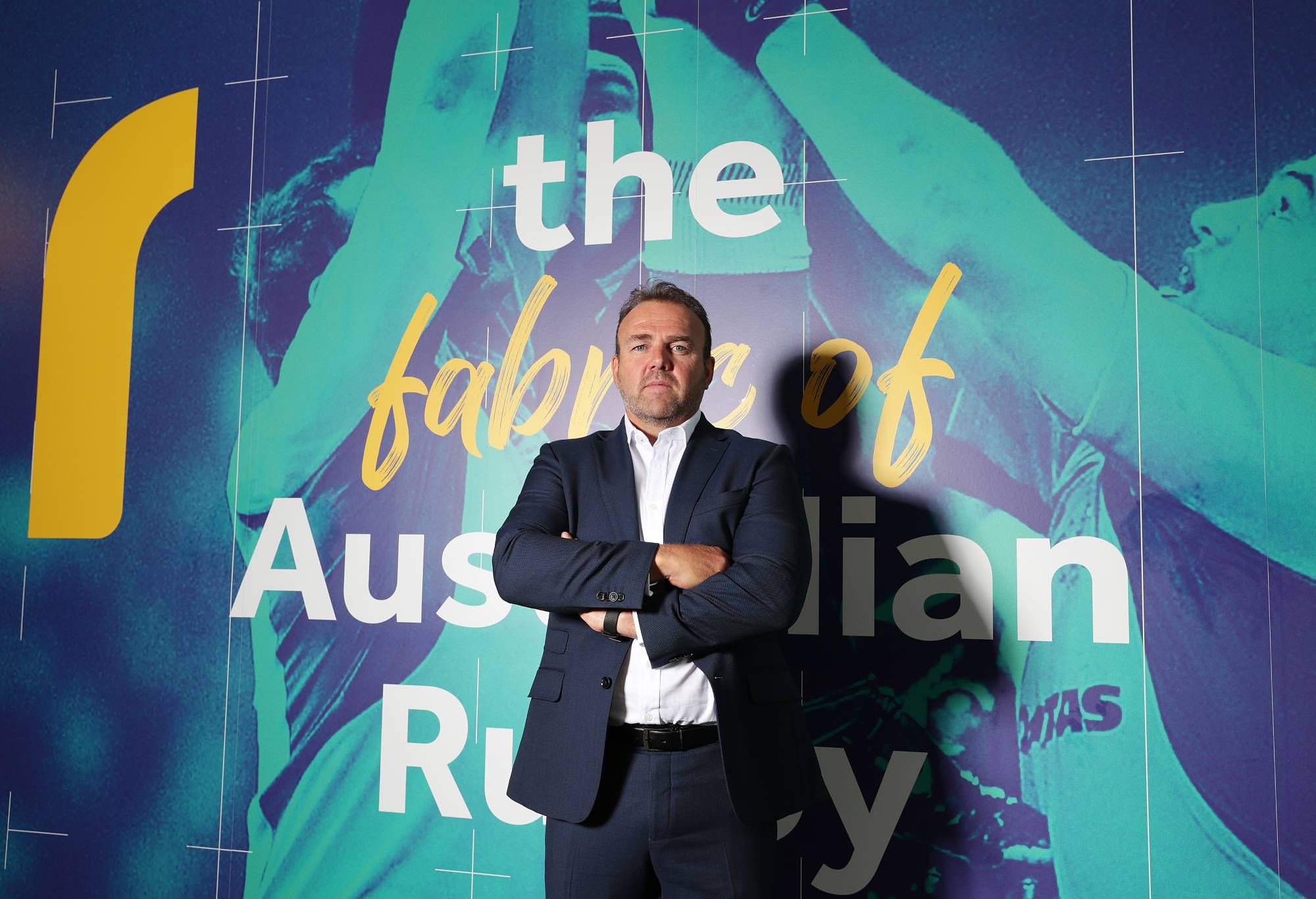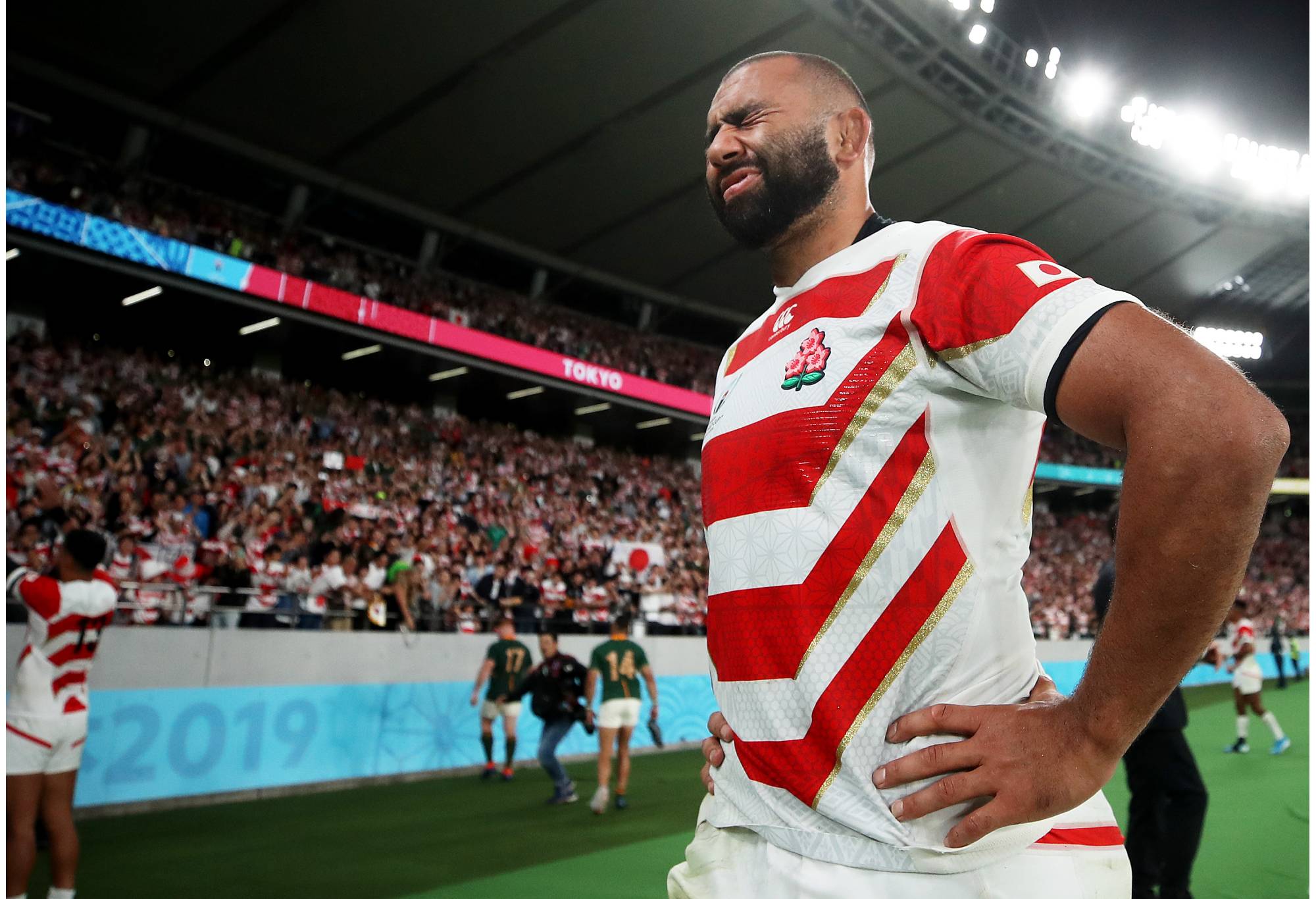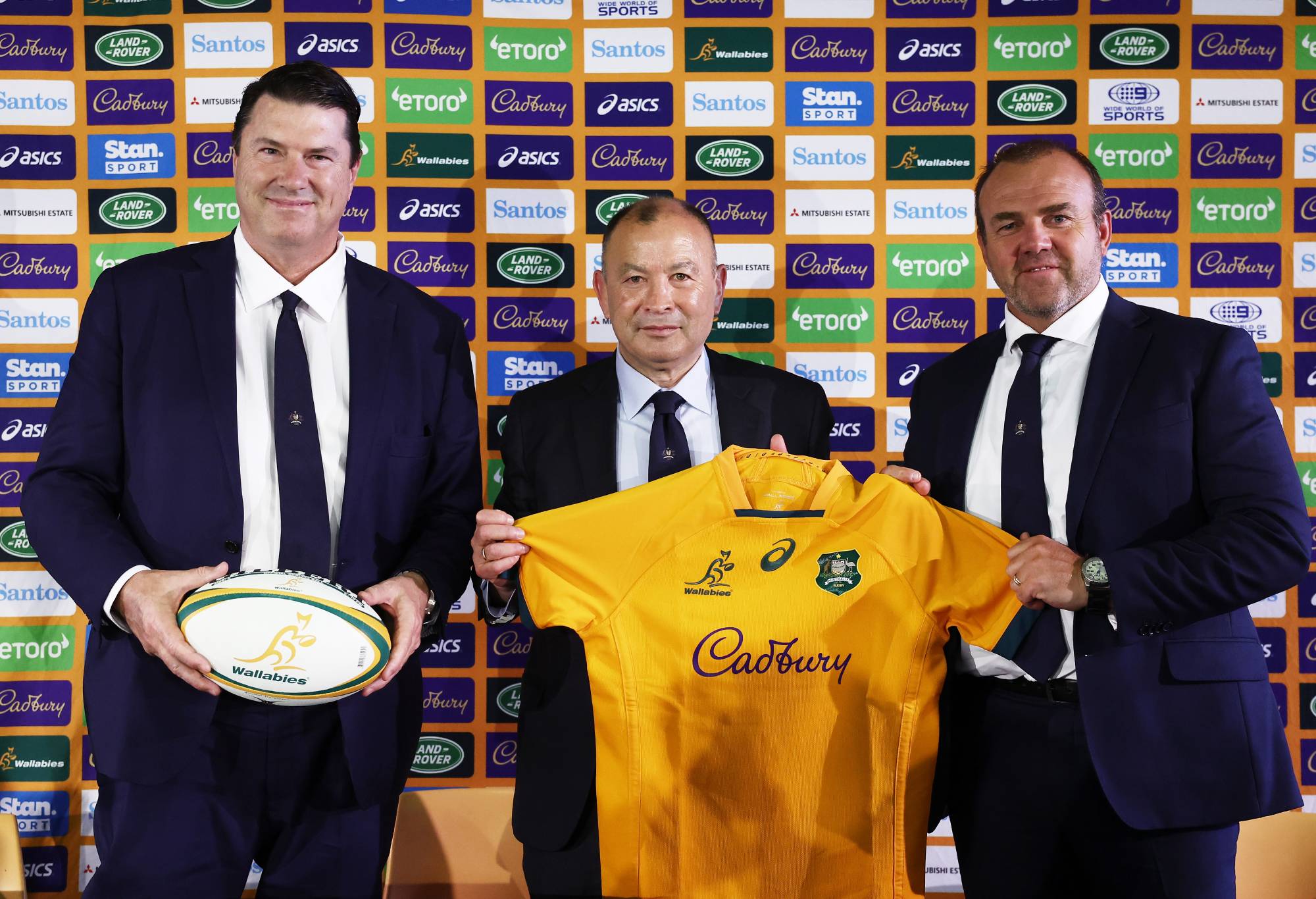Andy Marinos was a steadying influence when Australian rugby needed one. Perhaps too steady.
But depending on how Rugby Australia’s bet big strategy of 2023 pans out: history could paint him as the chief executive that got overruled by his chairman Hamish McLennan or merely as a footnote.
Remembered as the “invisible man” during his five-year reign as Super Rugby boss, Marinos was never one to get on the front foot. That theme continued during his years as Rugby Australia’s boss.
He might have inherited a basket case of a competition when he was announced as Super Rugby’s new boss in late 2015, but nor was he able to turn the ship around. Perhaps his biggest mistake was taking on a role that was largely dictated to by the respective Unions playing.
Yet, despite his best intentions, he contributed to the irrelevance of the competition.
Hidden away in Sydney, he was barely heard nor seen. Super Rugby’s sorry slide continued under his watch.
His ascension to the top of RA was not unexpected given his rugby pedigree, but it was surprising given the cloak of invisibility that he wore during his time as Super Rugby’s boss.

Andy Marinos will depart as Rugby Australia CEO by mid-June. Photo: Mark Metcalfe/Getty Images
Fundamentally a good and well-meaning person, Marinos’ cautious approach as RA chief executive seemed the result of years of scarring from his previous role.
While Super Rugby’s move into Japan with the Sunwolves didn’t work, it was set up to fail.
Already with a burgeoning competition, one which continues to attract some of the best players in the world, the innovation needed to be a Championship Cup and Challenge Cup style competition involving some of the best teams in Japan.
What’s more, after Japan knocked over South Africa in the 2015 World Cup and a quarter-final appearance at the 2019 campaign after victories over Ireland and Scotland, the Brave Blossoms needed to be quickly added to The Rugby Championship.
Momentum needed to be seized.

Michael Leitch reacts following defeat in the Rugby World Cup 2019 Quarter Final match against South Africa at the Tokyo Stadium on October 20, 2019 in Chofu, Japan. Photo: Cameron Spencer/Getty Images
While COVID-19 threw a spanner in the works, sitting on one of the biggest economies in the world and a rising rugby power was nonchalant at best.
Marinos alone couldn’t wield power, but he had his role to play. Proactiveness was needed.
Instead, the ridiculous rationale was delivered that Japan needed to prove they were worthy to join such a prestigious competition with the heavyweights of international rugby.
“The Japan – or any expansion – opportunity would be something we’d look at post the World Cup [in 2023],” Marinos said in 2021.
“We had looked at trying to set up an emerging nations competition, and have our respective ‘A’ teams playing in that competition.
“The big thing we’ve seen, and I’ve said it many times, when the Six Nations expanded from five to six [to include Italy], you want to be able to make sure the teams competing are competitive week-in, week out.
“Let’s not kid ourselves, coming into a Sanzaar relationship, you’re putting yourself up against arguably three or four of the best teams in the world, on their given day.”
But let’s be honest, how have the Wallabies fared over the past two decades?
The odd win sure, but a Bledisloe? Nope.
A Rugby Championship? Silverware only in World Cup years, where the Wallabies didn’t win away in South Africa or New Zealand.
Even the Springboks were smashed 57-15 at home in 2016 and 57-0 a year later in New Zealand.
Japan would – and still could – have given the TRC a huge boost.
Not one to rock the boat, Marinos regularly chose the safe option or was missing in action during key moments in the game’s history.
Sources have told The Roar he wanted to sit on Eddie Jones until 2024 and was the only figure to have voted to pass on recruiting Joseph Suaalii.

Newly appointed Wallabies coach Eddie Jones (C) poses alongside Rugby Australia Chairman Hamish McLennan (L) and former CEO Andy Marinos (R) during a press conference at Matraville Sports High School on January 31, 2023 in Sydney. Photo: Matt King/Getty Images
Even on the subject of the Wallabies’ white jersey at the 2023 World Cup, it’s understood Marinos was happy to fall in line with World Rugby’s request to deal with colour blindness.
It seemed at odds with Jones, who told the ABC last weekend “It’s not our choice, but it’s forced upon us by the organisers”.
Few will shed tears over his departure. Some at RA believed he was controlling and wanted to be over every bit of detail and always knew best.
Marinos did play his part in Rugby Australia securing the 2027 (men’s) and 2029 (women’s) World Cups. Yet, RA was well on its way to securing the Cups when Marinos jumped on board.
Nonetheless, his strong network, built over decades as a player and administrator, was beneficial.
He was also actively involved in RA’s private equity bid, which shapes as a pivotal moment in the game’s history.
A numbers man, who helped RA get back on track financially, history will look back favourably at Marinos’ tenure should RA capitalise on the key three events, as well as the looming Lions series.
But, in all likelihood, his two-and-a-half-year tenure will be largely remembered as merely a footnote in the game’s history.































































































